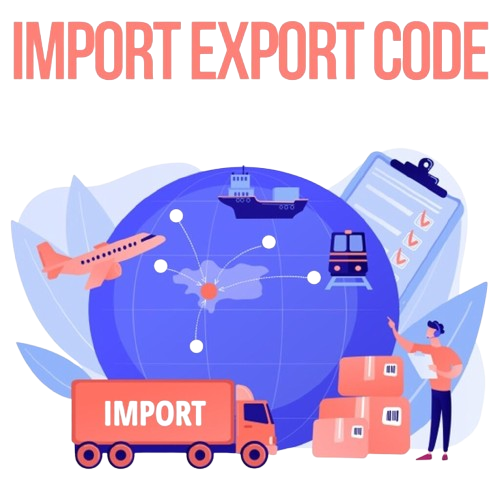Welcome to SRV Taxcon
SRV Taxcon is an emerging brand in Taxation and Accounting Consulting, specializing in services for start-up businesses.
We offer a single-window solution for Registration and License:
- Our in-house team handles over 50 types of business licenses.
- We provide end-to-end services across India.
- Ensuring smooth and continuous adherence to all legal.
10000+
Happy Clients
3500+
Expert Advisors
50+
Branch Offices
Free Consultation by Expert
Registration
- Home
- All Services
- Registration
Get an Appointment
- GST Registration
- ESI Registration
- PF Registration
- Import Export Code
- MSME Registration
GST Registartion

Benefits of GST Registration
Legal Recognition: Establishes your business as a legally compliant entity.
Input Tax Credit: Claim credit for taxes paid on purchases, reducing overall tax liability.
PAN-India Operations: Enables inter-state sales without restrictions.
Improved Credibility: GSTIN enhances the trust of customers, vendors, and partners.
Easier Compliance: Centralized online portal for filing returns and maintaining records.
Ideal For
Businesses with annual turnover exceeding ₹40 lakh / ₹20 lakh (as applicable)
Inter-state suppliers and e-commerce sellers
Exporters and importers
Freelancers and service providers
Businesses wanting to claim input tax credit


Registration Process
Initial Consultation & Document Collection
Understanding your business type and gathering required documents.GST Application Filing
Filing online application with the GST Portal and uploading supporting documents.Verification & ARN Generation
Application is verified, and an Application Reference Number (ARN) is generated.GSTIN Issuance
Upon successful approval, GSTIN (GST Identification Number) and Certificate of Registration are issued.Post-Registration Advisory
Guidance on GST returns, invoicing, and compliance best practices.
Documents Required
For Proprietorship
PAN and Aadhaar of the proprietor
Photograph
Business address proof (utility bill, rent agreement, NOC)
For Partnership / LLP
PAN of firm and partners
Aadhaar and photo of partners
Partnership deed / LLP Agreement
Business address proof
For Company
PAN of company
Incorporation Certificate
PAN, Aadhaar, and photo of directors
MoA, AoA
Board resolution and authorized signatory details
Business address proof
What You’ll Get
GSTIN (15-digit identification number)
GST Certificate of Registration
Guidance on invoice format and tax rate applicability
Access to GST return filing support
Ongoing assistance for GST compliance
Frequently Asked Questions
Have a look at the answers to the most asked questions
Yes, if your turnover exceeds the threshold limit or if you’re engaged in interstate or e-commerce supply, registration is mandatory.
For goods: ₹40 lakh; for services: ₹20 lakh (₹10 lakh for NE and hill states). These limits may vary by state and business type.
Typically, 3–7 working days, subject to document verification and approval by the GST officer.
Yes, businesses can voluntarily register to avail input tax credit and expand their market credibility.
Yes, if you operate in multiple states, you need separate GST registration for each state.
ESI Registration

Benefits of ESI Registration
Medical Benefits for employees and their families
Cash Compensation during sickness and injury
Maternity Benefits for female workers
Disability and Dependent Benefits in case of employment injury or death
Compliance with Labour Laws, avoiding penalties
Applicability
ESI registration is applicable to:
Companies, factories, and establishments with 10 or more employees
Employees earning a gross salary of ₹21,000 or less per month
Applicable across all sectors – manufacturing, service, education, retail, etc.
Includes contract and casual workers

Process
Assessment & Eligibility Check
Analyze employee strength and salary structure.Document Preparation
Collect employer and employee details, establishment documents.Online Registration on ESIC Portal
Fill Form-1 and upload necessary details.ESI Code Allotment
Employer receives a 17-digit unique identification number.Employee Registration
Individual ESI numbers are generated for each covered employee.
Documents Required
Certificate of Incorporation / Establishment license
PAN of company and employer
Address proof of business (utility bill/lease deed)
List of employees with salary details
Bank details of employer
Digital Signature (DSC) of authorized signatory
Details of Directors / Partners / Proprietor


What You’ll Get
ESIC Registration Certificate
17-digit ESI Registration Number
Employee login credentials for ESI benefits
Support for monthly ESI return filing and compliance
Guidance on ongoing ESI contributions and inspections
Frequently Asked Questions
Have a look at the answers to the most asked questions
It is mandatory for establishments with 10 or more employees drawing a monthly wage of ₹21,000 or less.
Both employer and employee contribute—employer contributes 3.25% and employee contributes 0.75% of wages.
No. Employees earning above the threshold are not eligible for ESI coverage.
Contributions must be deposited by the 15th of every month for the preceding month.
Yes, ESI registration is a one-time process, but monthly compliance is mandatory.

Client Testimonials
“Words from happy clients who chose us with confidence”
Product Manager
Rajeev S.
Frontend Team Lead
Emily D.
Backend Engineer,
Ahmed K.
CTO, TechNova
Sophia R.
Full Stack Developer
John M.
Latest News

EPR Authorization for E-Waste and P-Waste: A Complete Guide
Starting a new business is exciting—but overlooking the legal groundwork can cost you dearly in the long run……..

Top Legal Registrations Every Indian Startup Needs
Starting a new business is exciting—but overlooking the legal groundwork can cost you dearly in the long run……..

Why Every Growing Business Needs a Virtual CFO
In today’s competitive business environment, strategic financial management isn’t just for large enterprises……
Our Clients









PF Registration
Benefits of PF Registration
- Financial security at retirement
- Tax benefits
- Encourages employee retention
- Loan facilities
- Pension scheme availability
Eligibility
- Generally mandatory for firms with 20 or more employees.
- Smaller companies can also register voluntarily.
- Employees earning up to a certain amount per month are usually covered.


Registration Process
- Obtain Digital Signature Certificate (DSC): Required for online authentication.
- Collect Key Establishment Details: Gather all necessary business and employee documents.
- Use the EPFO Portal: Access the official EPFO website to register the establishment.
- Receive Establishment Code: EPFO will generate a unique code for all future PF transactions.
- Get UAN: Your employer will provide you with a Universal Account Number.
Documents Required
- For the Business:
- Business PAN card
- Proof of address (e.g., electricity bill, rental agreement)
- Certificate of registration or incorporation
- For Employees:
- Full details (name, address, date of joining, salary details)
- Aadhar and PAN details

Frequently Asked Questions
Have a look at the answers to the most asked questions
Generally, any business with 20 or more employees is required to register for PF. However, even companies with fewer employees can register voluntarily. Employees earning up to a certain threshold are usually covered under the scheme.
For the business, you’ll typically need the business PAN card, address proof, and registration/incorporation certificate. For employees, details like name, address, date of joining, salary information, and Aadhar and PAN details are usually required.
The process generally involves obtaining a Digital Signature Certificate (DSC), gathering all necessary business and employee information, registering the establishment on the EPFO portal, receiving an establishment code, and employees receiving their Universal Account Numbers (UANs).
PF registration provides employees with financial security upon retirement, offers tax benefits on contributions, facilitates access to loan facilities, and makes them eligible for pension schemes.
Yes, it is mandatory for establishments with 20 or more employees. Non-compliance can lead to penalties.

Import Export Code

Benefits of lIEC Registration
Mandatory for Imports and Exports: No export/import transaction can happen without a valid IEC.
Global Market Access: Enables your business to reach international markets.
No Renewal Required: IEC is issued for a lifetime unless canceled or surrendered.
Easy Compliance: Simple documentation and minimal compliance requirements.
Government Benefits: Eligible for export subsidies, schemes, and exemptions offered by DGFT, Customs, and Export Promotion Councils.
Ideal For
Exporters of goods or services
Importers of goods
E-commerce sellers involved in international trade
MSMEs and startups exploring global markets
Businesses expanding into overseas operations


Registration Process
Initial Consultation
Understanding your business needs and explaining the IEC registration requirements.Document Collection
Gathering necessary documents like PAN, address proof, and bank details.Application Filing
Submitting the online application on the DGFT portal.Verification & Processing
DGFT reviews and verifies the application and attached documents.Issuance of IEC
Upon successful approval, the Import Export Code Certificate is issued electronically.
Documents Required
PAN Card of the individual/company
Aadhaar Card of proprietor/partners/directors
Passport size photograph
Business address proof (Utility Bill, Rent Agreement, NOC)
Bank Certificate or a canceled cheque
Certificate of Incorporation (for companies/LLPs)
What You’ll Get
Import Export Code (10-digit IEC)
IEC Certificate issued by DGFT
Eligibility to import and export goods/services
Assistance with DGFT updates and modifications (if needed)
Advisory on utilizing IEC for maximum international opportunities
Frequently Asked Questions
Have a look at the answers to the most asked questions
Yes, any person or company planning to import or export from India must have a valid IEC.
IEC is valid for a lifetime and does not require renewal. However, businesses must update their details annually if there are changes.
Yes, a single IEC can be used for multiple export/import businesses registered under the same entity.
Typically, the IEC is issued within 1–3 working days after successful submission and verification.
Yes, businesses can request cancellation or update details like address, director, or ownership structure through the DGFT portal.
MSME Registration

Benefits of MSME Registration
Government Subsidies & Incentives: Access to subsidies, rebates, and government grants.
Easy Bank Loans: Quicker and cheaper loans with lower interest rates under priority sector lending.
Tax Benefits: Exemptions and concessions under direct tax laws.
Protection Against Delayed Payments: Legal support under the MSMED Act for timely payment recovery.
Participation in Tenders: Special access to government tenders and procurement benefits.
Reduction in Trademark and Patent Fees: 50% subsidy on filing fees.
Ideal For
Small manufacturers, service providers, and traders
Startups and entrepreneurs seeking government support
Businesses looking for easier loan access and credit support
Enterprises seeking priority sector recognition from banks


Registration Process
Initial Consultation
Understanding your business category — Micro, Small, or Medium Enterprise.Document Collection
Gathering all required information and documents.Application Filing
Filing the MSME (Udyam) registration form online through the official portal.Verification & Approval
Application is verified, and registration is processed.MSME Certificate Issuance
Issuance of Udyam Registration Certificate with unique Udyam Registration Number (URN).
Documents Required
Aadhaar Card of the Proprietor/Partner/Director
PAN Card of the entity and individual
Business address proof (Electricity Bill, Rent Agreement, NOC)
Bank Account details
Business activity details and NIC Code
Investment and turnover details

What You’ll Get
Udyam Registration Certificate (valid for lifetime)
MSME classification: Micro / Small / Medium
Access to priority sector lending benefits
Eligibility for government tenders and subsidies
Assistance in availing MSME-specific schemes

Why is Company Registration Required?
Company registration is a process that gives legal status to a business and establishes its identity, separate from its owners. It boosts the organization’s credibility, making it easier to gain the trust of the customers, suppliers and investors. It also opens the gateway to secure funding and facilitates protecting intellectual property rights. Company registration in India guarantees perpetual succession, enabling the business to operate beyond the founders’ participation. Registering a business is a step that gives the company a formal and legal standing, helps in its expansion and provides financial stability.
Advantages of Registering a Company
Limited Liability Protection
One of the most important benefits of a private limited company is that it offers limited liability protection.
Limited Liability Protection
One of the most important benefits of a private limited company is that it offers limited liability protection.
Limited Liability Protection
One of the most important benefits of a private limited company is that it offers limited liability protection.
Limited Liability Protection
One of the most important benefits of a private limited company is that it offers limited liability protection.
What are the Eligibility Criteria for Company Registration?
According to the Ministry of Corporate Affairs, the eligibility criteria to register a company in India includes the following:
Checklist for the Private Limited Company:
- A minimum of two shareholders. Maximum number of shareholders can be 200.
- A minimum of two directors, one of whom must be a resident of India.
- The selected company name must be unique and should not appear similar to an existing business.
- The Registrar of Companies (ROC) must approve the proposed company name.
- Have an official company address.
- A valid Goods and Services Tax (GST) number.
- Should register with the Employee Provident Fund (EPF) department.
- Should register with the Professional Tax department (if applicable).
- Legal and regulatory compliance is a must—maintaining books of accounts, holding annual general meetings, filing annual returns with the ROC, etc.
- The company should not be involved in any illegal activity per Indian law.


What are the Eligibility Criteria for Company Registration?
According to the Ministry of Corporate Affairs, the eligibility criteria to register a company in India includes the following:
Checklist for the Private Limited Company:
- A minimum of two shareholders. Maximum number of shareholders can be 200.
- A minimum of two directors, one of whom must be a resident of India.
- The selected company name must be unique and should not appear similar to an existing business.
- The Registrar of Companies (ROC) must approve the proposed company name.
- Have an official company address.
Post-Registration Compliance for Company Registration
Post-registration compliance for a private limited company includes various the adherence of legal and regulatory requirements including:
LLP Registration
Simplify your business setup with SRV Taxcon’s expert LLP Registration services.
GST Registration
Ensure your business is GST compliant with SRV Taxcon’s hassle-free GST Registration services.
MSME Registration
Empower your business with SRV Taxcon’s MSME Registration services and get recognized as a Micro, Small.
LLP Registration
Simplify your business setup with SRV Taxcon’s expert LLP Registration services.
GST Registration
Ensure your business is GST compliant with SRV Taxcon’s hassle-free GST Registration services.
MSME Registration
Empower your business with SRV Taxcon’s MSME Registration services and get recognized as a Micro, Small.
Features of a Private Limited Company
A private limited company is one of the most popular forms of business structures in India for its distinct characteristic features, including:

- A minimum of two shareholders. Maximum number of shareholders can be 200.
- A minimum of two directors, one of whom must be a resident of India.
- The selected company name must be unique and should not appear similar to an existing business.
- The Registrar of Companies (ROC) must approve the proposed company name.
- The Registrar of Companies (ROC) must approve the proposed company name.
- Have an official company address.
- Have an official company address.
- The Registrar of Companies (ROC) must approve the proposed company name.
- Have an official company address.
Choose your plan. No hiddden charge!
Pricing Plan
STARTER
$28
- 50GB Bandwidth
- Business & Finance Analysing
- 24 hour support
- Customer Managemet
- 2 Emails Acounts
STARTER
$28
- 50GB Bandwidth
- Business & Finance Analysing
- 24 hour support
- Customer Managemet
- 2 Emails Acounts
STARTER
$28
- 50GB Bandwidth
- Business & Finance Analysing
- 24 hour support
- Customer Managemet
- 2 Emails Acounts
Frequently Asked Questions
Have a look at the answers to the most asked questions

The procedure for incorporating a company requires DSC & DIN for directors, a unique company name, filing of incorporation documents, and getting a company registration certificate.
The procedure for incorporating a company requires DSC & DIN for directors, a unique company name, filing of incorporation documents, and getting a company registration certificate.
The procedure for incorporating a company requires DSC & DIN for directors, a unique company name, filing of incorporation documents, and getting a company registration certificate.
The procedure for incorporating a company requires DSC & DIN for directors, a unique company name, filing of incorporation documents, and getting a company registration certificate.
The procedure for incorporating a company requires DSC & DIN for directors, a unique company name, filing of incorporation documents, and getting a company registration certificate.
Client Testimonials
“Words from happy clients who chose us with confidence”
Product Manager
Rajeev S.
Frontend Team Lead
Emily D.
Backend Engineer,
Ahmed K.
CTO, TechNova
Sophia R.
Full Stack Developer
John M.
Latest News

EPR Authorization for E-Waste and P-Waste: A Complete Guide
Starting a new business is exciting—but overlooking the legal groundwork can cost you dearly in the long run……..

Top Legal Registrations Every Indian Startup Needs
Starting a new business is exciting—but overlooking the legal groundwork can cost you dearly in the long run……..

Why Every Growing Business Needs a Virtual CFO
In today’s competitive business environment, strategic financial management isn’t just for large enterprises……
Our Clients















